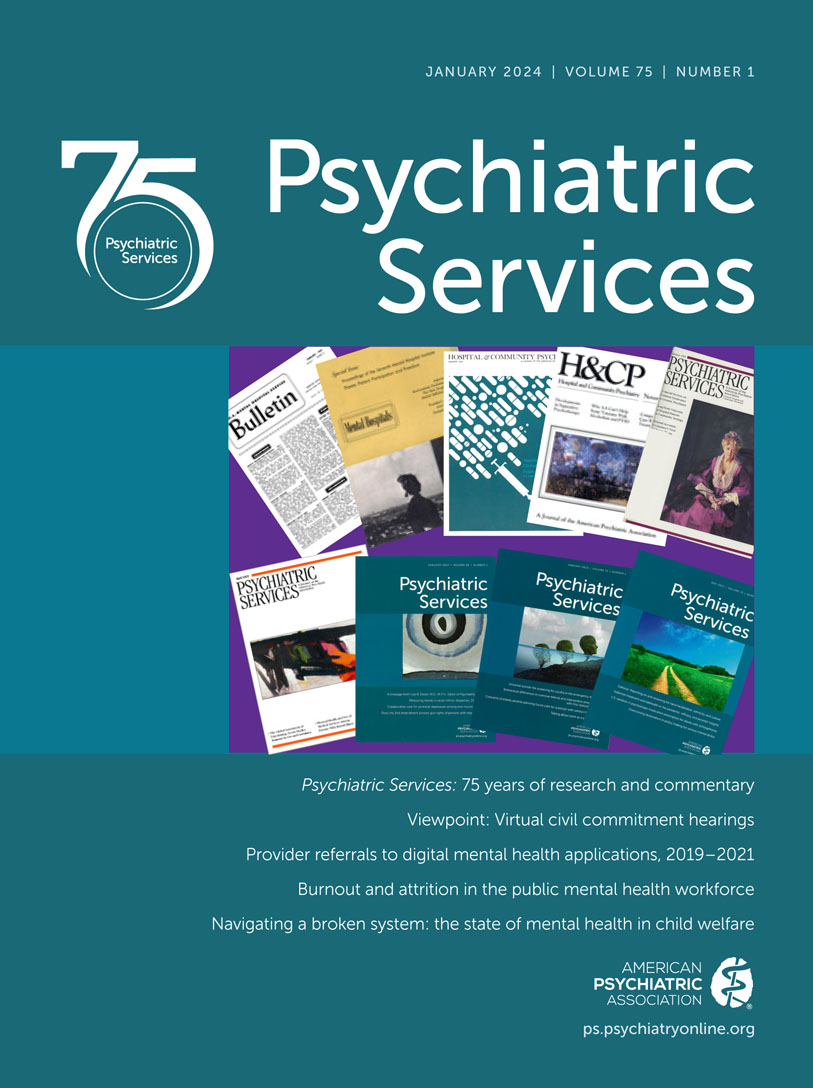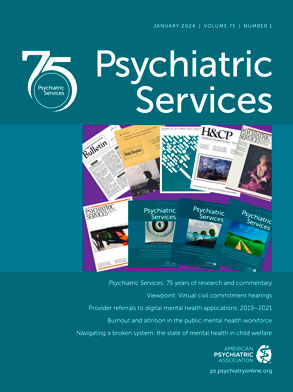Correction to Shields et al. (2021)
Among this national sample of 496 IMDs, the majority were for-profit, located in urban areas, provided substance use disorder treatment, participated in Medicaid, provides outpatient care, treats geriatric patients, and were compliant with conditions of participation (see the online supplement). Most did not treat children/adolescents or forensic patients.Over a quarter (N=137, 28%) of IMDs received Medicaid DSH payments. After analyses adjusted for characteristics and state fixed effects, government owned IMDs were more likely (OR=4.23, p=0.004) than nonprofit facilities to receive DSH payments. IMDs that treated forensic patients were also more likely to receive DSH payments (OR=4.42, p=0.003), as well as facilities in the top 20% of bed volume (OR=7.03, p<0.001).
Information & Authors
Information
Published In
History
Authors
Metrics & Citations
Metrics
Citations
Export Citations
If you have the appropriate software installed, you can download article citation data to the citation manager of your choice. Simply select your manager software from the list below and click Download.
For more information or tips please see 'Downloading to a citation manager' in the Help menu.
View Options
View options
PDF/EPUB
View PDF/EPUBLogin options
Already a subscriber? Access your subscription through your login credentials or your institution for full access to this article.
Personal login Institutional Login Open Athens loginNot a subscriber?
PsychiatryOnline subscription options offer access to the DSM-5-TR® library, books, journals, CME, and patient resources. This all-in-one virtual library provides psychiatrists and mental health professionals with key resources for diagnosis, treatment, research, and professional development.
Need more help? PsychiatryOnline Customer Service may be reached by emailing [email protected] or by calling 800-368-5777 (in the U.S.) or 703-907-7322 (outside the U.S.).

